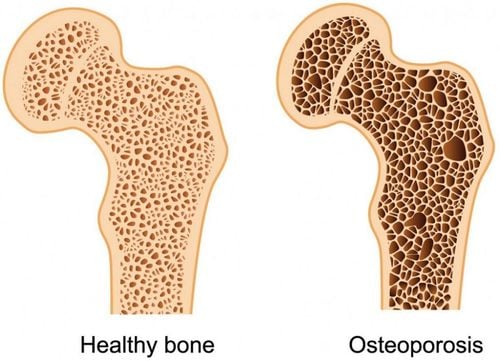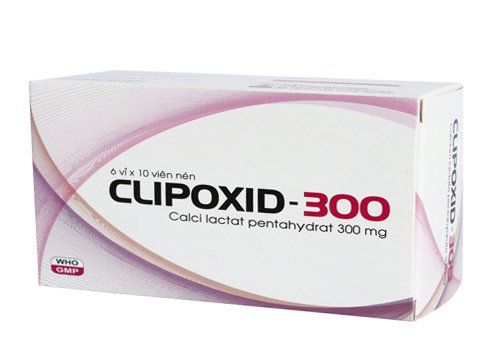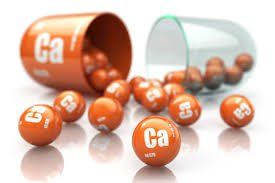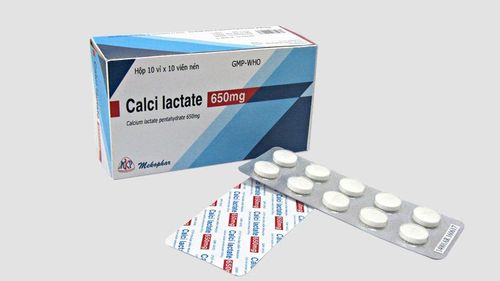The article is professionally consulted by Master, Doctor Nguyen Thi My - Department of Medical Examination & Internal Medicine - Vinmec Danang International Hospital.
Calcium is an essential mineral for bone development. However, improper calcium supplementation can negatively impact health. It’s crucial to avoid taking excessive calcium in a single dose; instead, divide calcium intake throughout the day.
1. Why should calcium not be taken in the evening?
Calcium is a vital mineral for the body, necessary for bone development, strengthening bones and teeth, and preventing conditions such as
Osteoporosis (a condition in which the bones become weak and are easily broken, usually when people get older or because they do not eat enough of certain substances).
Rickets (a condition that results in weak or soft bones in children and is caused by either dietary deficiency or genetic causes).
Osteomalacia (Soft bones).
If your diet lacks sufficient calcium — especially during periods of increased calcium demand (e.g., in growing children, pregnant or breastfeeding women, and the elderly) — calcium supplements are often required.
However, calcium should not be taken in the afternoon or evening for several reasons: Calcium is prone to deposition and accumulation during this time, potentially leading to the formation of calcium oxalate, which increases the risk of kidney stones, urinary stones, constipation, and, notably, insomnia or restlessness in children.
2. Can vitamin D and Calcium be taken together?
Vitamin D plays a crucial role in calcium absorption. It is used in the treatment of conditions such as rickets, osteomalacia, osteoporosis, and hypocalcemia. Children who lack sufficient vitamin D may experience impaired bone development due to poor mineralization of bone and cartilage, resulting in abnormal bone growth and deformation.
Because vitamin D enhances calcium absorption and helps convert it into calcium phosphate (a primary component of bones), calcium and vitamin D should be taken together. However, the dosage of vitamin D must be appropriate to maximize calcium absorption and metabolism.
For children, besides supplementing calcium and vitamin D, parents may consider functional foods that promote growth and strengthen bones. Mothers are encouraged to administer calcium and vitamin D supplements together in multiple courses throughout the year, with each course lasting approximately 3–6 months. Ideally, this should be done twice a year for the best results.
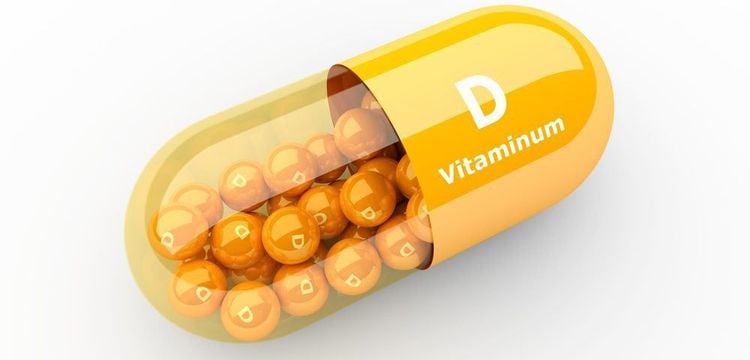
3. How to take Calcium properly
The daily calcium requirement is calculated based on the amount excreted in urine, which for an average adult is approximately 800–1.000 mg per day.
Doctors recommend that people at risk of kidney stones should be cautious with calcium supplements. A good way to supplement calcium is through meals. Eating foods rich in calcium is recommended.This approach minimizes the risk of side effects like kidney stones. Steps to reduce kidney stone risk when taking calcium:
Drink plenty of water: Consuming 1.5–2 liters of water per day (or more in hot weather or during heavy labor) reduces the risk of kidney stones by 20%.
Eat citrus fruits like lemons, oranges, and grapefruits (or pomelo). These contain citrate, which helps lower the risk of stone formation.
Limit high-oxalate foods such as rhubarb and beets. Oxalates bind with calcium in the gut and are excreted in urine. However, when consumed excessively, they can concentrate in urine and lead to stone formation.
When taking calcium milks or calcium pills, don't take too much at once; instead, split it up multiple times throughout the day. Furthermore, while using calcium supplements, consider the following points:
Take calcium in the morning, about one hour after breakfast, as sunlight increases calcium absorption.
Avoid salty foods as they can increase calcium excretion through urine.
Do not take calcium with milk or dairy products.
Avoid combining calcium with iron or other minerals like zinc and copper. Instead, separate their intake into morning, afternoon, and evening doses.
Avoid smoking and alcohol consumption, as these can hinder calcium absorption.
There are two primary dietary sources of calcium: Dairy products (e.g., milk, yogurt, cheese), fish and fresh vegetables.However, a typical diet only fulfills about 20–30% of the body’s calcium needs. Therefore, calcium supplements are often necessary. It’s important to understand the composition of the calcium supplement you choose to ensure it meets your specific requirements
Dr. My has over 6 years of experience in internal medicine at leading institutions, including Hue Central Hospital, Hue University of Medicine and Pharmacy Hospital, Tam Tri Da Nang Hospital, and Da Nang Hospital. She is currently a General Internal Medicine Physician at Vinmec Da Nang International Hospital.
Please dial HOTLINE for more information or register for an appointment HERE. Download MyVinmec app to make appointments faster and to manage your bookings easily.





